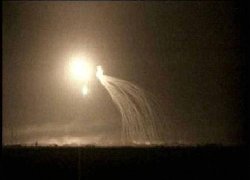When the UN Human Rights Council convened a special session on Sri Lanka last May, many were hoping for meaningful discussion about possible war crimes committed during the final phase of the country's civil war.
Thousands of civilians, who had been trapped between the Sri Lankan military and increasingly desperate Tamil rebels, were dead. Reports allege they were shelled by the military whilst sheltering in so-called "No Fire Zones" where they had been promised safety.
Hospitals and food distribution points had also been hit, and as the council convened in Geneva, tens of thousands of survivors huddled in sprawling internment camps in the north of the island, unable to leave and rebuild their shattered lives.
You would not know this, however, from the resolution the council passed. Drafted by the Sri Lankan delegation, it "commended" the government of Sri Lanka for its treatment of civilian victims of the war.
"It was a low point in the short history of the Human Rights Council," says Widney Brown, the director of the international law program at Amnesty International, describing how Asian countries allowed the resolution to pass unopposed.
Mind the gap
Amnesty's annual global human rights assessment, released on Thursday, says the Sri Lankan case offers a perfect example of a growing threat to the application of international law - the so-called "justice gap" between the powerful and the weak.
"We see governments holding themselves above the law," says Brown. "A lot of countries are working in regional blocs to shield themselves from criticism."
The problem is not restricted to a single country or region. Brown says that powerful countries are undermining justice efforts all over the world by refusing to submit themselves to the laws that protect civilians in conflict.
She cites US support for Israel as another manifestation of the same problem, predicting that if the situation arises, Washington will use its UN Security Council veto to prevent any meaningful action against Israel for crimes committed in Gaza.
"China, Russia and US, as permanent members of the Security Council, are holding themselves above the law," she says. "It's so fundamentally unfair for victims that will be denied justice."
Double standards
Meanwhile less powerful countries, particularly in Africa, feel aggrieved when they find that they are being held accountable for human rights abuses while more powerful countries act with impunity.
It is, Brown says, an understandable resentment at a double standard that undermines efforts to make international justice the norm rather than the exception.
"The hypocrisy and double standards undermine calls for justice that are legitimate."
She wants to see the levels of scrutiny applied to Africa extended to all countries.
"It's not a bad thing that victims in Africa have a chance of justice. We want to extend that accountability."
For many, such accountability will come too late. The Amnesty report paints a disturbing picture of human rights violations that have gone unpunished because powerful nations are unwilling to submit to international human rights standards. Rather than setting an example, campaigners say they are creating a culture of impunity.
From the failure to implement the recommendations of the Goldstone report into war crimes committed during the Gaza conflict, to the refusal of some of the world's most powerful countries to sign up to the International Criminal Court (ICC), the report catalogues example after example of rights abuses for which there has been no justice.
"Repression and injustice are flourishing in the global justice gap, condemning millions of people to abuse, oppression and poverty," says Claudio Cordone, Amnesty's interim secretary general.
Disturbing trends
The report identifies trends in human rights violations, including "mass forced evictions of people from their homes in Africa, for example in Angola, Ghana, Kenya and Nigeria, often driving people deeper into poverty".
It also records "increased reports of domestic violence against women, rape, sexual abuse, and murder and mutilations after rape," and a "sharp rise in racism, xenophobia and intolerance in Europe and Central Asia".
The overall message from Amnesty is clear; there is a long way to go before powerful nations stop trading away the application of justice for short-term political gains.
PHOTO CAPTION
A still image from the documentary Fallujah: The Hidden Massacre which charges U.S. warplanes illegally dropped white phosphorus incendiary bombs on civilians in Iraq
Source: Al-Jazeera


 Home
Home Discover Islam
Discover Islam Quran Recitations
Quran Recitations Lectures
Lectures
 Fatwa
Fatwa Articles
Articles Fiqh
Fiqh E-Books
E-Books Boys & Girls
Boys & Girls  Articles
Articles










